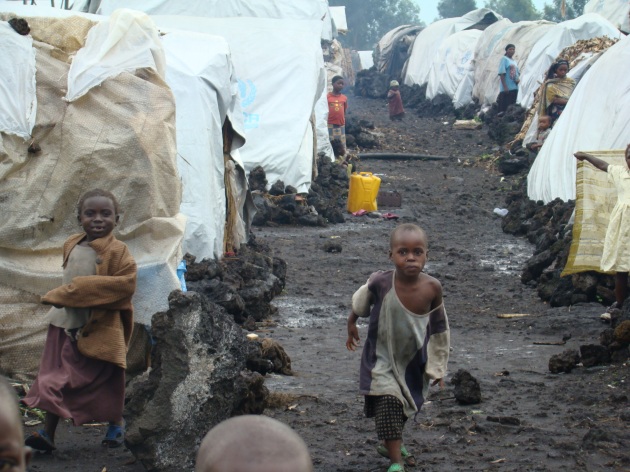Hearing the Cries, Heeding the Cries
SUDAN and SOUTH SUDAN
This week’s news offers a small glimpse of hope as the thousands of lives that are being jeopardized in the Nuba region is finally grasping the attention of the international community, government officials, and the media with recent visits by Anne Curry and Nick Kristof.
Secretary of State Hillary Clinton on Wednesday accused the Khartoum government of actively trying to undermine the government of South Sudan and suggested that the US is prepared to take measures against Bashir. Her comments came in response to Representative Ed Royce’s (R OC, CA) introduction of a new piece of legislation last week to expand the U.S. State Department’s Rewards for Justice program to include those wanted for the most serious human rights abuses, which includes Bashir’s indictment by the ICC.
The UN Security Council also called on the Sudanese government and the SPLM-N to cooperate fully and ensure that humanitarian assistance is delivered to those suffering from the rising levels of malnutrition and food insecurity. However, as attention is finally turned to these atrocities, attention is not enough, genocide by attrition still continues.
“We are still expecting them, they are still around us and now we don’t sleep in the houses, we are sleeping in the bush. That means the war is still there, no change.” Meluth Kur Jok, an elder who has sought sanctuary in Jonglei’s Akobo town since five close relatives were killed and 80 children abducted in an attack on his home village of Woulang a few weeks ago, told IRIN of his fears of more violence.
An unlikely actor, an American man married to a Nuba woman, Ryan Boyette, is risking his life to collect video of atrocities and has set up a network of local citizen journalists to document the atrocities and starvation in hopes of making the world care enough to intervene. So far the Associated Press, CNN, Fox News and Al-Jazeera have used his videos or photographs, and he plans to post more on a website, EyesAndEarsNuba.org and he was the one that helped Nick Kristof enter the Nuba Mountains.
Now more than ever we can feel the value of Ubuntu and realize that if one person is suffering, we are all suffering and must heed the cries for help and humanitarian assistance to the starving and afflicted people of South Kordofon/Nuba Mountains.
DEMOCRATIC REPUBLIC OF CONGO
All is not as it appears in the DRC as little is done to provide safety and security to the endangered and constantly antagonized Congolese civilian population. It is in the works to open up a third refugee camp in Uganda to cope with a influx of at least 100 people a day crossing the border to escape an upsurge in violence in eastern region of DRC. However, the population continues to be at risk from killings, abductions, and rape by armed men in the Eastern Kivu provinces, during transit, and in refugee camps. It is a situation replicated in thousands of registered and unregistered displaced persons settlements throughout the Great Lakes region. So what is being done?
The first case brought to the International Criminal Court filed in 2004 charging Congolese militia leader Thomas Lubanga with war crimes of enlisting and conscripting children under age 15 as soldiers during the conflict in 2002, has come to a verdict to be heard on March 14. This will be the ICC’s first judgment since its conception a decade ago. As an avid follower of DRC’s long entrenched conflict watching heinous human rights abuses and brutal rapes committed, it’s extremely disappointing that this narrowly focused case is the only one being heard after nine years and does not even come close to address the extent of crimes endured by the thousands of civilians everyday. It is also important to mention that Lubanga’s co-accused, Bosco Ntaganda charged by the ICC at the same time with war crimes relating to the recruitment and use of child soldiers in Ituri is currently untouched and a Congoloses general.
“There has never been a systematic attempt to address the issue of impunity within the Congolese justice system,” said Aaron Hall, Enough Project Congo policy analyst and report co-author. “The lack of accountability for war crimes including the murder of civilians, rape, plunder, and extortion is one of the key obstacles to creating an environment for peace and development in eastern Congo.”
I believe the ICC and the international community should work much harder with local partners to begin to hold perpetrators accountable, tackle impunity, and bring an ounce of justice to victims and survivors in the DRC.
BURMA
Burma’s on the surface changes are twofold. On the one hand Burma has headed toward reform and cease-fires reached with ethnic insurgents, and unprecedented open discussion about human rights violations, including in Kachin State where fighting since last June has displaced 70,000 people. However, on the other hand, the Burmese army is acting no better than it has in the past six decades, with reports of sexual violence, use of forced labor and firing on civilians.
“With all the changes happening in central Burma, it’s quite alarming that the military has shown absolutely no compunction to change its behavior,” Human Rights Watch senior researcher, David Mathieson told the Wilson Center.
Mathieson also noted less-documented rights abuses by some ethnic armed groups against their own people, including use of child soldiers—rampant too in the national army—and executions of Burma prisoners of war. It goes to show that although Burma’s release of prominent political prisoners is a step towards change, Burma has a long way to go as sporadic fighting and lack of accord between Kachin rebels and Burmese government leaves thousands of civilians in makeshift camp on the Chinese border.
Powered by WPeMatico
